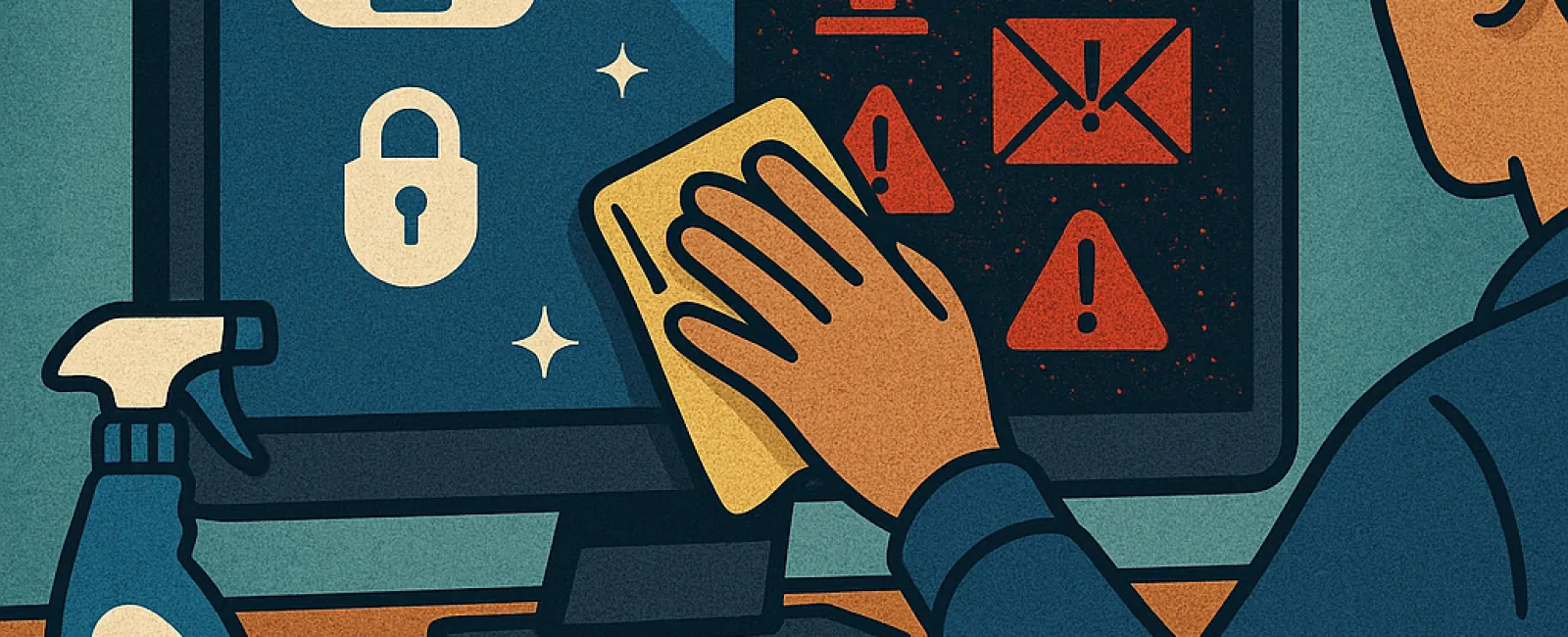September 08, 2025
Protecting your business from cyber threats starts with mastering the fundamentals. According to IBM's 2023 Cost Of A Data Breach Report, an alarming 82% of data breaches involved cloud-stored information. Most of these incidents could have been avoided by implementing straightforward, essential security measures.
Think of "cyber hygiene" as your business's daily handwashing routine. It might not be glamorous, but it's absolutely critical. Neglecting these basics is like leaving the door wide open for cybercriminals.
Here are four must-have cyber hygiene practices every small business should master:
1. Secure your network thoroughly.
Protect your internet connection by encrypting sensitive business data and deploying a robust firewall. Keep your WiFi network secure and invisible by disabling the Service Set Identifier (SSID) broadcast, so your network name isn't publicly visible. Always safeguard your router with a strong password. Additionally, ensure remote team members connect through a virtual private network (VPN) to maintain secure access from anywhere.
2. Empower your team with security knowledge.
Implement clear security policies to minimize risks from human error. This includes enforcing strong password protocols, enabling multifactor authentication (MFA), setting guidelines for appropriate internet use, and establishing procedures for handling sensitive data. Train your employees to recognize phishing attempts and avoid downloading suspicious files.
3. Regularly back up critical data.
In case of cyberattacks, system failures, or ransomware, having access to your essential data ensures business continuity. Schedule frequent backups of important files such as documents, spreadsheets, HR records, financial data, and databases. Whenever possible, automate backups and store copies securely offsite or in the cloud.
4. Restrict access to sensitive data.
Limit data access to reduce exposure risks. Assign employees access only to the systems necessary for their roles, and avoid granting anyone unrestricted access to all data. Reserve administrative privileges for trusted IT personnel and key staff. Also, promptly remove access for former employees during offboarding.
Investing in Security Saves You from Bigger Losses
While these security steps may seem time-consuming, they are a small price to pay compared to the devastating costs of data breaches or ransomware attacks that can cripple your business.
Ready to Stay Ahead of Cyber Threats?
If you're uncertain about your current security posture, now is the perfect moment to assess it. Our complimentary Consultation will reveal hidden vulnerabilities, highlight defense gaps, and provide you with a clear, actionable strategy to enhance your cyber hygiene swiftly. Click here or call us at (973) 575-4950 to book your Consultation today.



